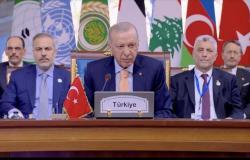After so much waiting, Morocco has taken a considerable step forward after two long years of anticipation. December 17, 2024 will mark an unprecedented human rights event in Moroccan history: Morocco has instituted a universal moratorium on deadly violence. This is an undeniable and powerful act of solidarity marking the reaffirmation of the protection of the right to life and human dignity.
Thus, taken during the 20th anniversary of the Equity and Reconciliation Commission, this decision is so revolutionary in all the implications of the abolition of the death penalty when the Kingdom now forever becomes a State channeling the transformation of law and ‘ethics. The IER was “ a truly innovative institution, a first-of-its-kind institution that has led its way for a decade”.
With this in mind, the organization called for a debate on the ratification of Optional Protocol No. 2 of the International Covenant on Civil and Political Rights with a view to the abolition of the death penalty. It was therefore an unprecedented transformation, expressed by constant advocacy to raise the country against such a cruel and irreversible practice.
The journey towards abolition was marked by a decisive turning point in 2014, during the 2nd World Human Rights Forum in Marrakech, where King Mohammed VI elevated the issue of the death penalty to the rank of national priority. The Sovereign called for collective and in-depth reflection, involving civil society actors, parliamentarians and legal experts. This historic moment breathed new life into the Moroccan abolitionist movement, directing the country towards the adoption of a universal moratorium as a prerequisite for the definitive abolition of capital punishment.
The National Human Rights Council (CNDH) has been a key player in this dynamic, particularly through its active presence at world congresses for the abolition of the death penalty. The CNDH has also led continuous and determined advocacy at the national level, advocating justice based on the restoration of human dignity, and not on revenge. This commitment illustrates the desire to build a society where justice transcends simple punishment, and becomes a path to reconciliation and respect for fundamental rights.
The adoption of the universal moratorium, although undeniable progress, remains a transitional stage. It now calls for bold and irreversible legislative reform, in order to enshrine this change in the Moroccan legal framework. This moratorium marks the start of a transition towards the total abolition of the death penalty, which is in line with respect for the Constitution and Morocco’s international commitments in terms of human rights.
Beyond legislative considerations, this approach demonstrates a societal choice based on ethical and moral principles. The abolition of the death penalty represents a clear desire on the part of Morocco to be part of a model of justice where human life is respected and protected. It embodies a rejection of violence, whether physical or institutional, and a call for justice that truly serves humanity.
By adopting this moratorium, Morocco is charting the path to a future where human dignity and respect for fundamental rights will be at the heart of its judicial system. This historic moment reaffirms that the death penalty constitutes a serious attack on the right to life, a primordial right without which no other freedom, no other right, can exist. The path to the complete abolition of capital punishment is now open, and Morocco is firmly positioned as a key player in the promotion of human rights on a global scale.





